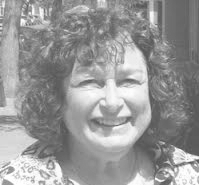I have long been in a quandary regarding the writing of my column. I have loved writing it for eight years. However, I have had to come to terms with several aspects of my openness, especially when I put my friends in the body of an essay. Signing my name to what I write makes me cautious of my content. I try to be respectful by letting friends know if I use their name. I ask their permission, and once receiving it I send them a copy of my column. I got in trouble with friends when I did not use the person’s name, but they figured out that I was referring to their story. Another time I mentioned information using the person’s name in a positive way. However, it was information that could have been problematic and, in that case, I did not ask permission. I struggle with how much to reveal based upon experiences I have. I have to realize that I am more open than some columnists. On my personal continuum, reality TV is often embarrassing, as in too much information. So I do struggle to tell the truth but not embarrass myself or anyone else.
Before reality TV, there were novels. When I was active in the Human Potential Movement of the 1970s, one of my professors affirmed, “ Don’t read psychology texts if you want to deepen your understanding of human behavior, read novels. It is within those pages that you can get the inner workings of man’s true nature.”
Recently, I have been reading the “Neapolitan” quartet by Elena Ferrante. As I was reading the first novel, “My Brilliant Friend,” I was struck by the level of intimacy and exposure she communicated about the relationship between Elena (the protagonist) and her best friend. The novel resonated with me and so many others, because it was so clearly what happens in those preadolescent years. So real, authentic and intimate! I became sure that Elena the author was writing about herself and I decided to find out if indeed she was writing about a real relationship. What I learned was that the author had used a pseudonym and that no one knew who she was.
In that I already question how much personal information a writer is willing to share, I reasoned that she did not want to be known because the subjects she wrote about would be able to identify themselves and would not be too pleased. Indeed, Lila, her brilliant friend, in novel three implores Elena not to use her as a focus in one of her books.
It is heroic to write a novel, because you are sharing your inner truths, your experiences, the people who mean the most, how could you not. Then you call it fiction. Do we all have to hide our truths, our interpretations of our world by saying, “Oh, that was just my imagination?” And where does one get the insights that define a great novel if not from our own lives.
Creative writing instructors always encourage us to write about what we know.
Just recently at our weekly poker game, I was kidding around with Joe D., when he had five eights to beat my royal flush. He was sitting across the table from me so I gave him the thumb on the nose, wave your fingers gesture. Boy did Joe, who is always so affable get upset at me. Being Italian, he told me that my gesture was insulting. This led me to research Italian gestures of which there are 250 noted in the article I consulted. Half of them are fighting incentives. Joe didn’t knock my block off, but I learned a new lesson about communication: know your audience and respect it.
I will continue to write about what I know and experience and try for greater authenticity because we need, I believe, to learn about how others handle life’s tribulations, especially people we know and trust. We can resonate with the young girls in Elena Ferrante’s novels and love the level of intimacy they allow. We can take heart from someone like us who is on the journey we are on together. Anyway that is why I will continue to share as openly as my continuum allows.
Ellen Blaufarb is a Marriage Family Therapist.







Leave a Reply